ELAR 2.1
Developing and sustaining foundational language skills: listening, speaking, discussion, and thinking--oral language. The student develops oral language through listening, speaking, and discussion. The student is expected to:
- (1) Author's purpose and craft: listening, speaking, reading, writing, and thinking using multiple texts. The student uses critical inquiry to analyze the authors' choices and how they influence and communicate meaning within a variety of texts. The student analyzes and applies author's craft purposefully in order to develop his or her own products and performances. The student is expected to:
- (2) discuss the author's purpose for writing text;
- (A) discuss how the use of text structure contributes to the author's purpose;
- (B) discuss the author's use of print and graphic features to achieve specific purposes;
- (C) discuss the use of descriptive, literal, and figurative language;
- (D) identify the use of first or third person in a text; and
- (E) identify and explain the use of repetition.
- (F) Composition: listening, speaking, reading, writing, and thinking using multiple texts--writing process. The student uses the writing process recursively to compose multiple texts that are legible and uses appropriate conventions. The student is expected to:
- (3) plan a first draft by generating ideas for writing
such as drawing and brainstorming;
- (A) develop drafts into a focused piece of writing by:
- (B) organizing with structure; and
- (i) developing an idea with specific and relevant details;
- (ii) revise drafts by adding, deleting, or rearranging words, phrases, or sentences;
- (C) edit drafts using standard English conventions, including:
- (D) complete sentences with subject-verb agreement;
- (i) past, present, and future verb tense;
- (ii) singular, plural, common, and proper nouns;
- (iii) adjectives, including articles;
- (iv) capitalization of months, days of the week, and the salutation and conclusion of a letter;
- (v) adverbs that convey time and adverbs that convey place;
- (vi) prepositions and prepositional phrases;
- (vii) pronouns, including subjective, objective, and possessive cases;
- (viii) coordinating conjunctions to form compound subjects and predicates;
- (ix) end punctuation, apostrophes in contractions, and commas with items in a series and in dates; and
- (x) correct spelling of words with grade-appropriate orthographic patterns and rules and high-frequency words; and
- (xi) publish and share writing.
- (E) Composition: listening, speaking, reading, writing, and thinking using multiple texts--genres. The student uses genre characteristics and craft to compose multiple texts that are meaningful. The student is expected to:
- (4) compose literary texts, including personal
narratives and poetry;
- (A) compose informational texts, including procedural texts and reports; and
- (B) compose correspondence such as thank you notes or letters.
- (C) Inquiry and research: listening, speaking, reading, writing, and thinking using multiple texts. The student engages in both short-term and sustained recursive inquiry processes for a variety of purposes. The student is expected to:
- (5) generate questions for formal and informal inquiry
with adult assistance;
- (A) develop and follow a research plan with adult assistance;
- (B) identify and gather relevant sources and information to answer the questions;
- (C) identify primary and secondary sources;
- (D) demonstrate understanding of information gathered;
- (E) cite sources appropriately; and
- (F) use an appropriate mode of delivery, whether written, oral, or multimodal, to present results.
- (G) listen actively, ask relevant questions to clarify information, and answer questions using multi-word responses;
- (H) follow, restate, and give oral instructions that involve a short, related sequence of actions;
- (I) share information and ideas that focus on the topic under discussion, speaking clearly at an appropriate pace and using the conventions of language;
- (J) work collaboratively with others by following agreed-upon rules for discussion, including listening to others, speaking when recognized, making appropriate contributions, and building on the ideas of others; and
- (K) develop social communication such as distinguishing between asking and telling.
- Free Plan
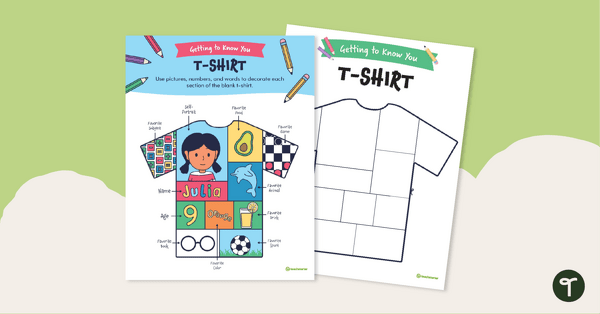
Getting to Know You T-Shirt
Start the school year off with a bang with this getting-to-know-you activity.
- Plus Plan
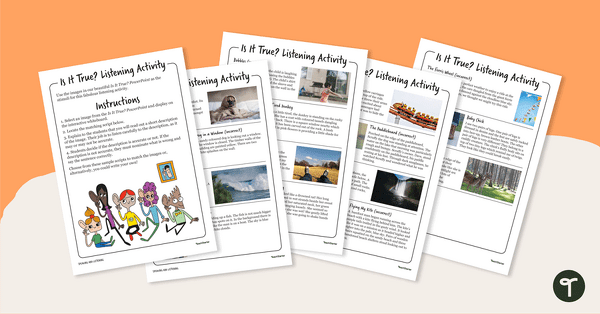
Is It True? Listening Activity
Practice your students' listening skills with this listening activity.
- Free Plan
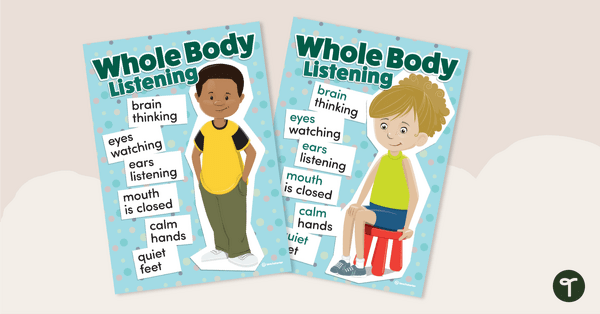
Whole Body Listening Posters
A set of posters highlighting the characteristics of a good listener.
- Free Plan
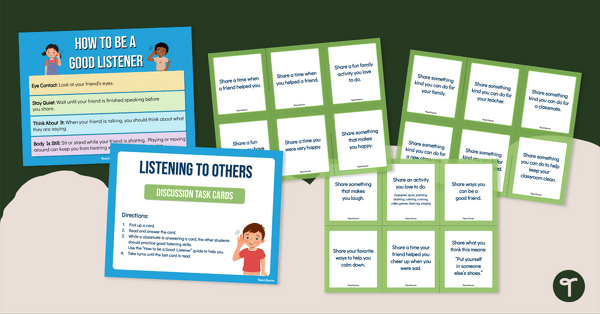
Listening to Others – Discussion Task Cards and Poster
Give students the opportunity to work on their listening skills and learn what it means to be a good listener with this set of 42 discussion cards and classroom poster.
- Plus Plan
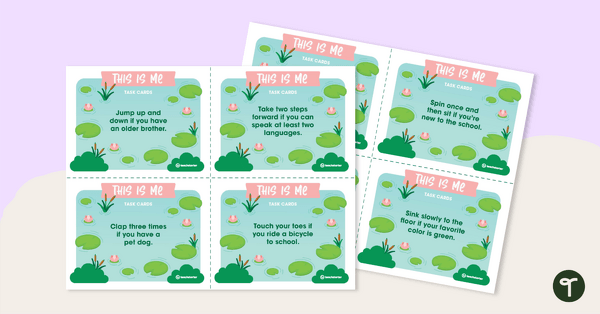
This Is Me Task Cards
Get to know your students on the first days of a new school year with this fun getting-to-know-you game.
- Free Plan
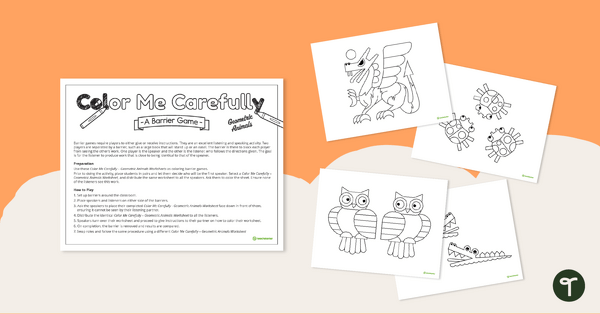
Color Me Carefully – Geometric Animals
Hone in on your students' speaking and listening skills with this barrier activity.
- Free Plan
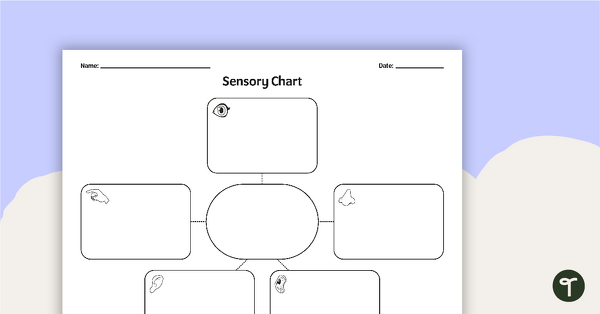
Sensory Chart Graphic Organizer
A graphic organizer for students to use when categorizing sensory details.
- Plus Plan
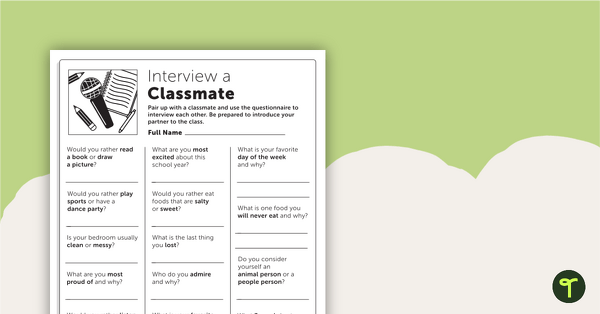
Interview a Classmate - First Day of School Activity
Help your students learn more about their new classmates (even if they have been together for the last 5 years) with this fun speaking and listening activity!
- Plus Plan
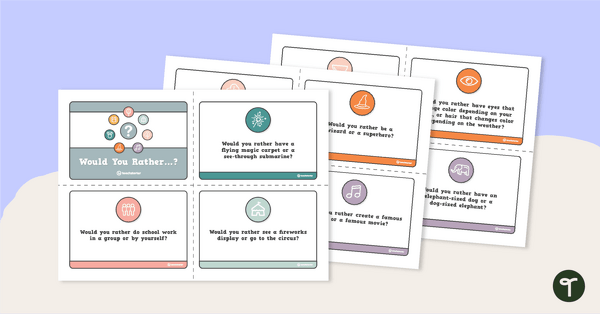
Would You Rather...? Question Cards
Would You Rather use this set of 31 question cards or eat a can of worms?
- Plus Plan
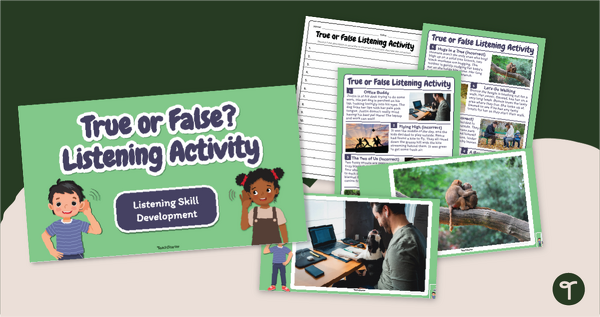
True or False? Active Listening Exercises
Improve listening skills in the classroom with an engaging True or False Active Listening Activity.
- Plus Plan
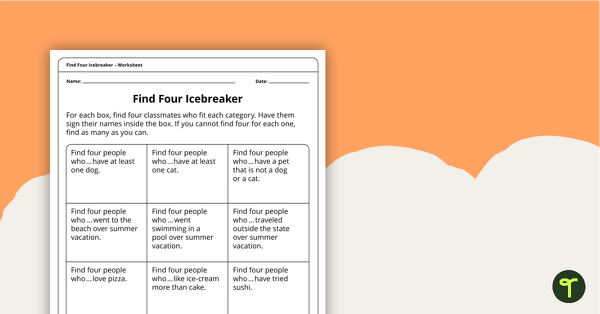
Find Four Icebreaker Activity
A fun icebreaker activity to use at the beginning of a new school year.
- Plus Plan
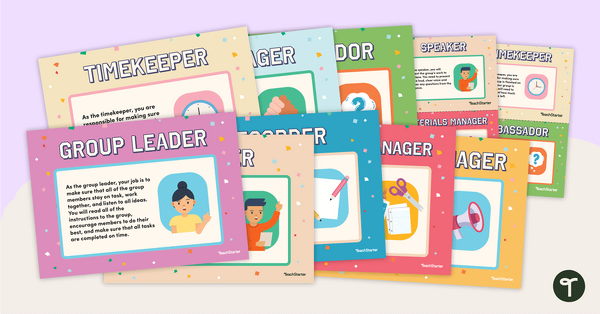
Group Work Role Cards
Review and reinforce eight possible roles for group work with this set of 2-in-1 reusable posters and desk cards.
- Plus Plan
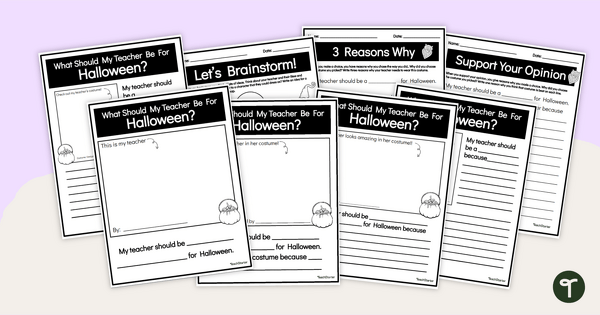
What Should My Teacher Be For Halloween? Writing Activity Pack
Have your students decide and write about what costume the teacher should wear on Halloween with a differentiated Halloween writing activity.
- Plus Plan
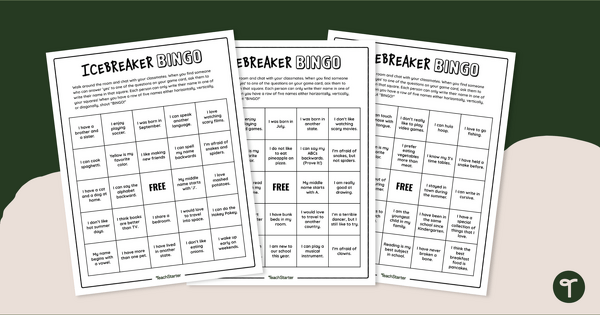
Icebreaker Bingo
Kick off a new school year with a getting-to-know-you icebreaker game!
- Plus Plan
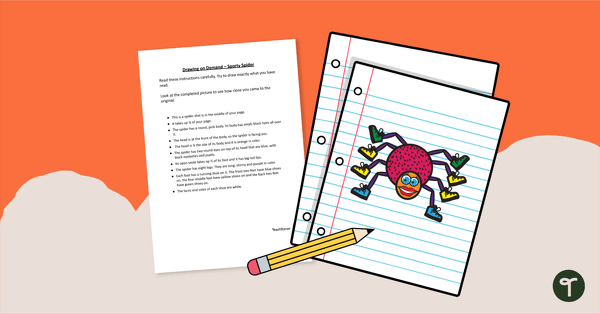
Directed Drawing Activity - How to Draw a Spider
Teach students how to draw a spider with a fun directed drawing activity for elementary students.
- Plus Plan
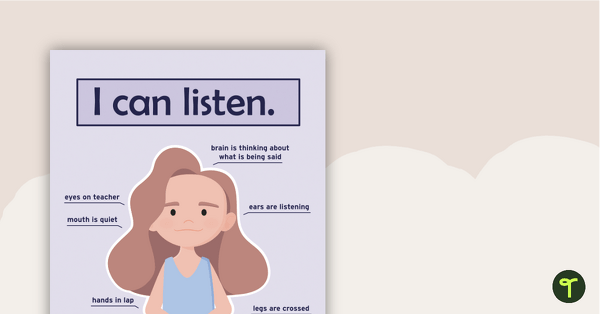
I Can Listen Poster
A poster to scaffold appropriate behavior for students when listening in class.
- Plus Plan
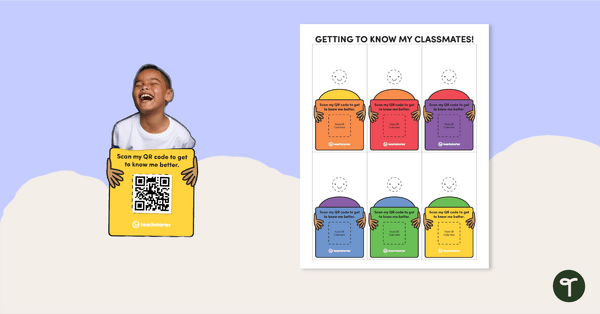
Getting to Know My Classmates – QR Code Template
Use QR codes to get to know your new classmates at the start of a new school year.
- Plus Plan
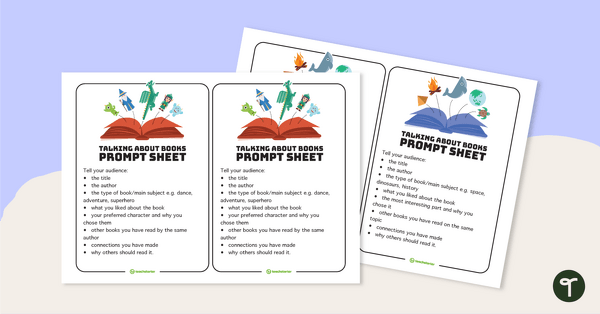
Talking About Books - Prompts
Prompts for students to use when orally discussing books.
- Plus Plan
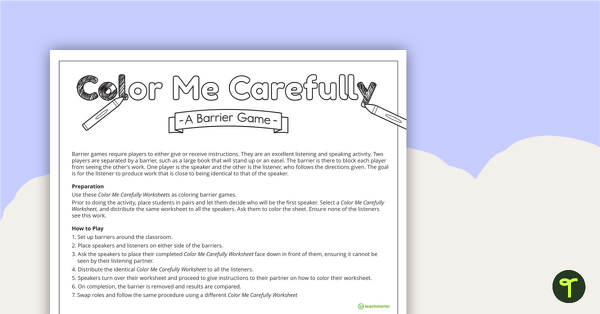
Color Me Carefully Game
Practice your students' listening and speaking skills with a fun coloring activity.
- Plus Plan
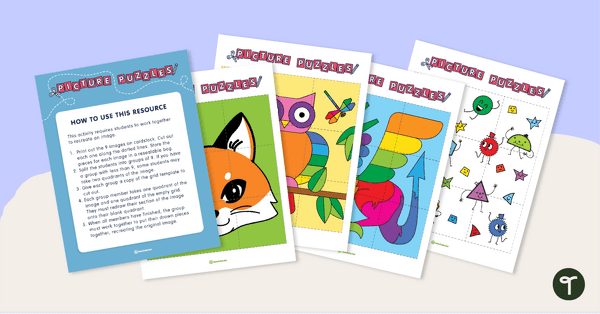
Picture Puzzles - Team Building Activities
A set of 10 picture puzzles to use as a team-building activity.
- Plus Plan
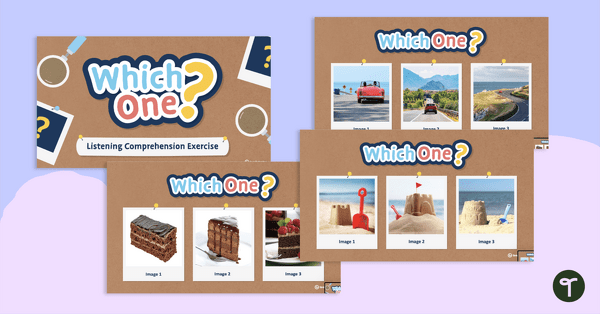
Which One? – Listening Comprehension Exercise
An Interactive PowerPoint where students listen to a description and choose the matching image.
- Plus Plan
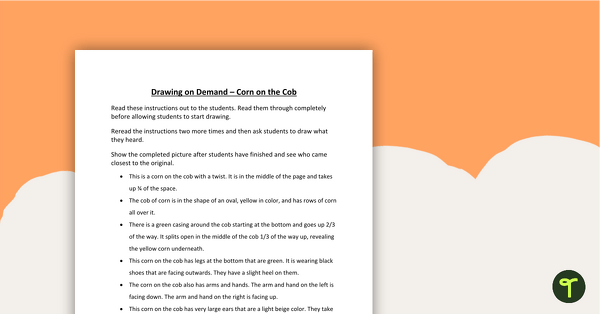
Directed Drawing for Kids - How to Draw Corn on the Cob
Use this directed drawing activity with your students to teach them how to draw corn on the cob and enhance classroom listening.
- Plus Plan
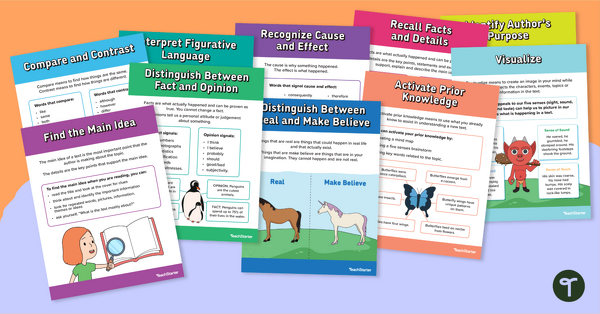
Reading Comprehension Strategies Anchor Charts
Provide young readers with concrete examples of reading strategies with a set of 18 ready-made reading anchor charts.
- Plus Plan
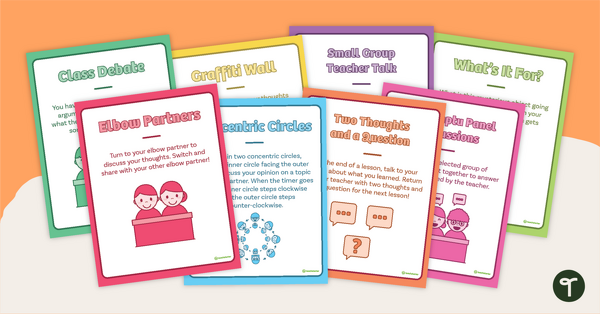
Student-Led Discussion Strategies Poster Pack
Describe student-led discussion strategies with this set of 8 posters.
- Plus Plan
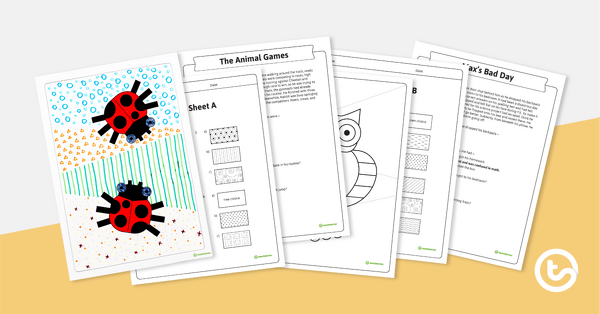
Listen, Comprehend, and Color Worksheets
A listening comprehension exercise and art activity rolled into one.
- Plus Plan
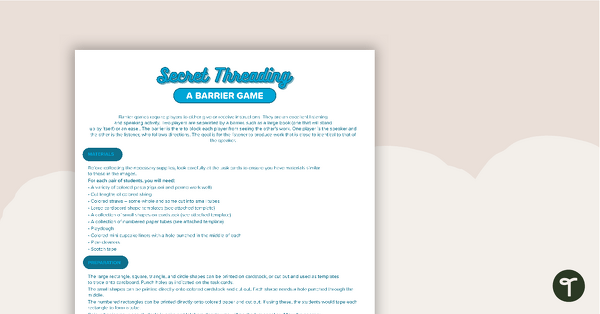
Secret Threading Task Cards
Practice listening and speaking skills with this fun barrier activity.
- Plus Plan
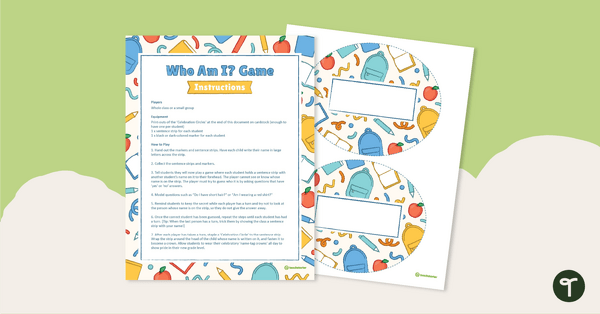
Who Am I? Icebreaker Game
Make day 1 a success with this fun icebreaker game.
- Plus Plan
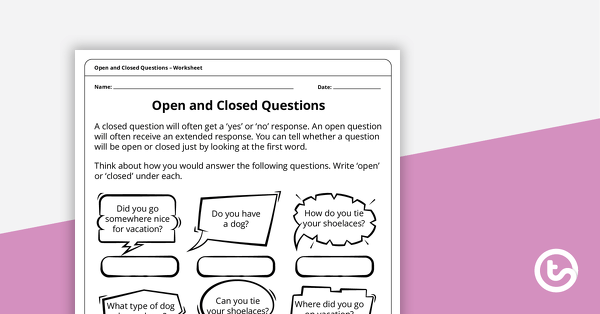
Open and Closed Questions – Worksheet
A worksheet for students to demonstrate their knowledge of open and closed questions.
- Plus Plan
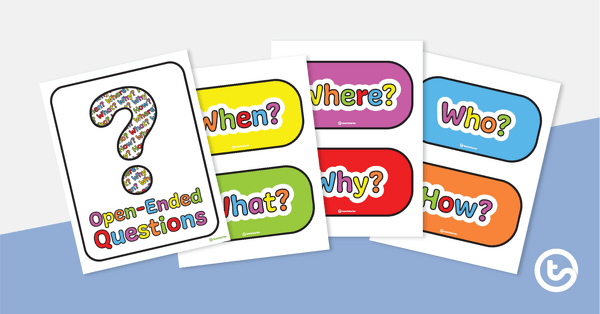
Question Starter Display
A classroom display to encourage questioning in the classroom.
- Plus Plan
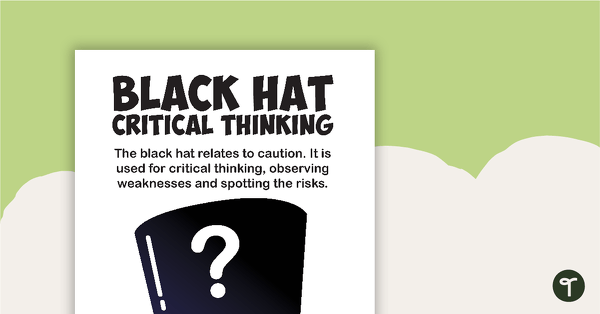
Thinking Hats for Effective Group Work
Thinking Hats based on Dr. Edward de Bono's teachings.
- Plus Plan
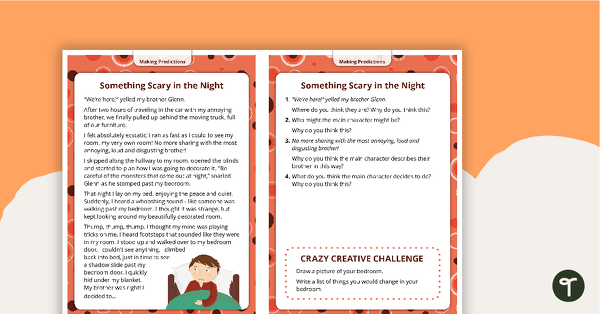
60 Comprehension Strategy Task Cards
A 144 page comprehension resource pack to help students apply comprehension strategies when reading.
- Plus Plan
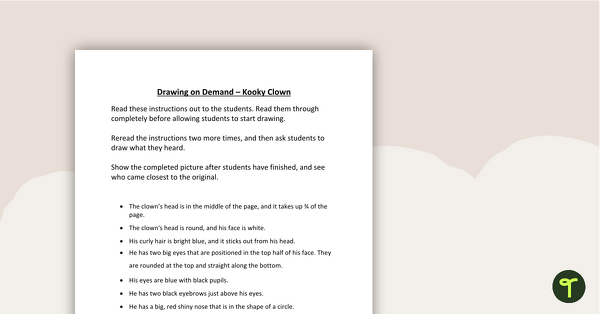
Directed Drawing Activity - How to Draw a Clown
Teach students how to draw a clown with a fun directed drawing activity created by teachers.